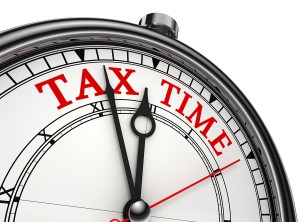Washington lawmakers are now debating two sets of legislation: one bill would renew the Internet sales tax initiative that politicians have been attempting to pass for nearly two years now, while the other bill would prohibit state and local governments from charging an Internet access tax.
Grover Norquist, president of Americans for Tax Reform (ATR), says that any sort of legislation that taxes individuals for accessing the Internet or making purchases online would be a terrible concept and measures that should be ignored by Congress.
 Speaking in an interview with Newsmax TV on Thursday, Norquist, who has been a polarizing figure on tax issues, questioned why any Republicans would endorse the Marketplace Fairness Act or Permanent Internet Tax Freedom Act, considering that it’s “a declaration of war” for any person that utilizes the Internet.
Speaking in an interview with Newsmax TV on Thursday, Norquist, who has been a polarizing figure on tax issues, questioned why any Republicans would endorse the Marketplace Fairness Act or Permanent Internet Tax Freedom Act, considering that it’s “a declaration of war” for any person that utilizes the Internet.
The Marketplace Fairness Act was renewed by Wyoming Republican Senator Mike Enzi, Illinois Democratic Senator Dick Durbin, Tennessee Republican Senator Lamar Alexander and a few other senators. The bill would “restore” states sovereign rights to institute and enforce state and local sales taxes.
Proponents of this bill say that it would level the playing field for online merchants and brick and mortar stores. Opponents, which think it’s another tax grab for cash-strapped governments, present the case that it would inevitably hurt smaller retailers because they would be forced to comply with complex regulations from thousands of state and local tax jurisdictions.
Meanwhile, the Permanent Internet Tax Freedom Act, which was passed in 1998, permitted 10 states, including New Hampshire, Ohio, Wisconsin, Texas and Washington, to tax accessing the Internet. Officials say that they’ll expand the no-tax clause on Internet access for 10 years rather than permanently.
Senate Finance Committee Chairman Ron Wyden told The Hill that both bills contradict each other: “They’re separate issues. The Marketplace Fairness bill as written now is contradictory to what the Internet Tax Freedom bill is all about.”
According to Norquist, this is “the worst of both worlds.”
“We’ll extend [a no-tax clause on] the Internet access band — not permanently, just for maybe 10 years — in return for taxing Internet sales across state lines,” Norquist averred. “It’s the worst of both worlds. It trades a temporary protection against one tax in return for a permanent increase of taxing across state lines. Then 10 years from now they’ll come back and start jamming you on Internet access … It’s a very bad bill.”
Published an op-ed last year in the Business Insider, former Texas Republican Congressman and three-time presidential candidate Ron Paul wrote that there are numerous drawbacks and unintended consequences of implementing an online sales tax, such as preventing the production and potential growth of the next Amazon.
“And giving ravenous state governments new authority to tax sales made by out-of-state businesses practically guarantees future sales tax hikes, as the arguments will be made that most of the increases will fall on out-of-state businesses,” stated Paul. “These businesses will lack effective ability to oppose the tax increases — a form of taxation without representation.”
Despite the arguments being put forth against the Internet sales tax push, numerous businesses, national trade associations and state and local trade associations have endorsed the initiative to permit state and local governments from collecting taxes.



